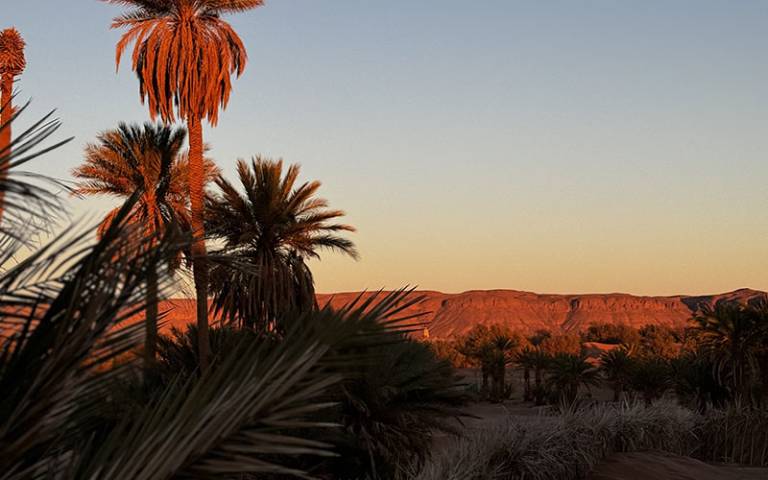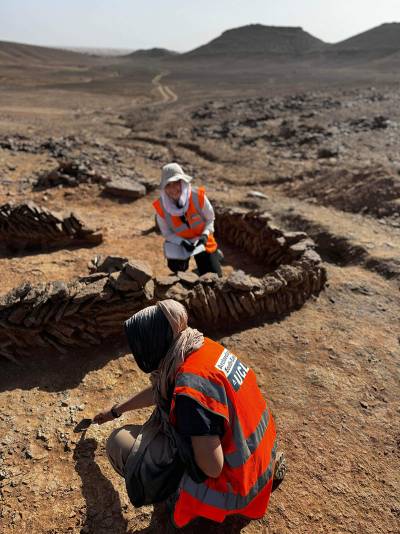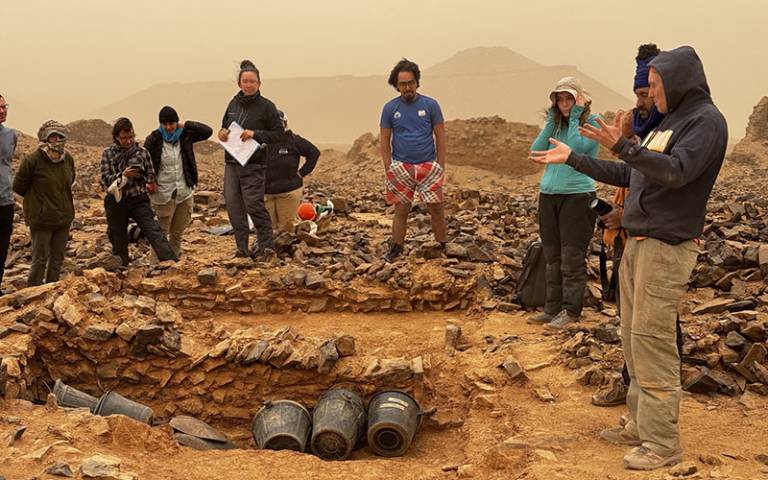UCL archaeologists undertake collaborative fieldwork in Morocco
26 February 2024
Staff from the UCL Institute of Archaeology and Archaeology South-East have been undertaking collaborative fieldwork in Morocco.

In early 2024, the OASCIV project (a collaboration between INSAP, the University of Leicester and the UCL Institute of Archaeology) excavated four sites in the Wadi Draa in southern Morocco.
The project is an international collaboration led by Youssef Bokbot (Professor, INSAP, Rabat), Corisande Fenwick (Professor, UCL) and David Mattingly (Professor, University of Leicester) which explores oasis life in Saharan Morocco over the past 2,000 years.
Using interdisciplinary approaches, the project team will build an integrated picture of a desert society, its people, settlements and burial monuments, technologies, way of life, beliefs and economy, providing a new benchmark for study of indigenous peoples of the Western Sahara.

This year's fieldwork team has included archaeologists Giles Dawkes, Samara King, Wiktoria Krzoska and Hannah Street from Archaeology South-East (ASE) as well as archaeologists from INSAP Rabat, University of Leicester, University of Reding, Historic England and Ulster University.
Excavations in an Iron Age-Medieval granary found evidence of early crop processing and hundreds of grinding stones, confirming the Iron Age development of oasis agriculture in Saharan Morocco.
Excavations at a series of houses in a fortified hilltop medieval town and its suburbs (LAR 3 and 4) have found evidence of bead production, ivory trade and food processing.
The project is ongoing; the Moroccan-British team will continue to uncover these exciting sites and learn more as they dig deeper. Stay tuned!
The season was funded by the ERC-funded EVERYDAYISLAM project (awarded to Corisande Fenwick), with additional support from the AHRC-funded OASCIV project.
EVERYDAYISLAM explores the underlying reasons for the spread of the Islamic way of life in North Africa between ca. 600-1000 CE, through new excavations, scientific analysis, legacy datasets and written sources. This research takes a comparative approach to study long-term changes in housing, agriculture, diet and technology in this region.

Further details
- Making Oasis Civilisation in the Moroccan Sahara (OASCIV)
- Becoming Muslim: Cultural Change, Everyday Life and State Formation in early Islamic North Africa (600-1000) (EVERYDAYISLAM)
Images: All images courtesy of Wiktoria Krzoska (Archaeology South-East, ASE). See further images of the fieldwork and finds by following the UCL Institute of Archaeology on Twitter/X.
 Close
Close

